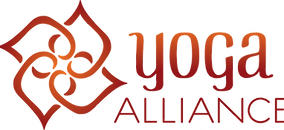Newsletter Sign Up HERE
200 HOUR HOT VINYASA YOGA TEACHER TRAINING
Hot Yoga Lounge, Inc. 200-hour Vinyasa yoga teacher training is designed to enhance your personal practice and to provide you with the skills to teach students an alignment conscious and inspiring yoga class. This training is for dedicated yoga students and aspiring yoga instructors.

2025 NOW OPEN!

Weekend Hours
Fridays-5:00p-9:00p
Saturdays-7:30a-5:30p
Sundays-7:30a-12:30p
Tuition
$2800 with Payment Plan
$2500 if Paid in Full by start of training
$500 Non-Refundable Deposit to Secure Spot
2025 Training Schedule
-
September 12th-14th
-
September 26th-28th
-
October 10th-12th
-
October 24th-26th
-
November 7-8 (Graduation!)
-
July 11th-13th
-
July 25th-27th
-
August 8th-10th
-
August 22nd-24th
Curriculum
200-Hour Standards for Yoga Teacher Training These Standards describe Yoga Alliance®’s Requirements for a Registered Yoga School (RYS®) that offers a 200-hour program. Topics for registered teacher trainings must be relevant to the five YA Educational Categories below. Registered schools must provide a minimum number of hours of study for each category, and must also provide additional hours of study relevant to these categories, which may be distributed according to the school’s chosen emphasis.
A RYS with a 200-hour program (RYS 200) should adequately prepare trainees to teach a general adult population and must incorporate training hours in the following YA Educational Categories:
1. Techniques, Training and Practice: 100 hours Topics in this category could include, but would not be limited to: asanas, pranayamas, kriyas, chanting, mantra, meditation and other traditional yoga techniques. These hours must be a mix between: 1) analytical training in how to teach and practice the techniques, and 2) guided practice of the techniques themselves. Both areas must receive substantial emphasis.
2. Teaching Methodology: 25 hours
*Topics in this category could include, but may not be limited to: Communication skills such as group dynamics, time management, and the establishment of priorities and boundaries. How to address the specific needs of individuals and special populations, to the degree possible in a group setting. Principles of demonstration, observation, assisting and correcting, teaching styles, qualities of a teacher, the student learning process and the business aspects of teaching yoga (including marketing and legal). *The Five Categories of Asana: The trainee will practice and learn the key poses in each category of asana (standing poses, forward bends, backbends, twists, and inversions) and will begin to develop a relationship to both the form and the function of these different categories. *Maps of Alignment: Trainees will achieve comprehension of the alignment maps for each of the five categories of asanas through observation and experience of how the poses in each category share a common foundation, and how to build upon this foundation. *Principles of Demonstrating Asanas: Discuss how effective demonstrations in class can help emphasize an alignment or other focus for the specific pose or sequence of poses. *Learning Modalities: identifying your dominant style, and learning how to teach based on others’ learning styles *Use of Language and Voice: Lecture and discussion on active vs. passive language and the effective use of each; positive and conscious communication, and habitual speech and communication patterns
3. Anatomy and Physiology: 20 hours
Topics in this category could include, but would not be limited to: Human physical anatomy and physiology (bodily systems, organs, etc.) and may also include energy anatomy and physiology (chakras, nadis, etc.). Includes both the study of anatomy and physiology along with its application to yoga practice (benefits, contraindications, healthy movement patterns, etc.).
4. Yoga Philosophy, Lifestyle and Ethics for Yoga Teachers: 30 hours
Topics in this category could include, but would not be limited to: The study of yoga philosophies and traditional texts (such as the Yoga Sutras, Hatha Yoga Pradipika or Bhagavad Gita). Yoga lifestyle, such as the precept of non-violence (ahimsa), and the concepts of dharma and karma. Ethics for yoga teachers, such as those involving teacher – student relationships and community. Understanding the value of teaching yoga as a service and being of service to others (seva).
5. Practicum: 10 hours
Practice teaching as the lead instructor (does not include assisting, observing or giving feedback) *Receiving and giving feedback *Observing others teaching *Assisting students while someone else is teaching *Special Requirement: Each trainee must spend a minimum of 5 Contact Hours of practice teaching as the lead instructor. These hours may include the time during which the trainee is receiving feedback on his/her teaching. Time spent assisting, observing others teaching, or giving feedback to others is excluded from these hours.
TOTAL HOURS: 200 hours
Contact Heather with questions 386.846.2011
Upon completion, graduates will be able to register with Yoga Alliance, at the RYT-200 Level.
Please read more about Yoga Alliance Credentialing here:
https://www.yogaalliance.org/Credentialing/Credentials_for_Teachers








